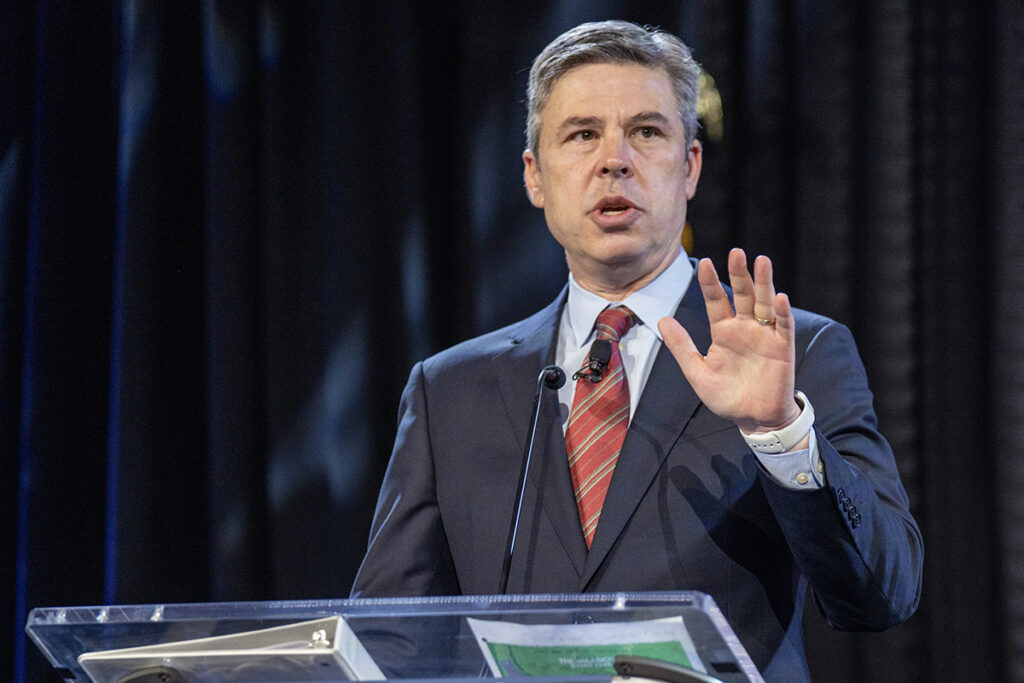
Electric cooperatives will soon have access to $9.7 billion in grants and loans to buy or build new clean energy systems, Rural Utilities Service Administrator Andy Berke told co-op leaders Monday at NRECA’s Legislative Conference.
Berke said the U.S. Department of Agriculture is poised to roll out the program in the coming days. It was approved last August when Congress passed the sweeping Inflation Reduction Act.
“This is huge,” Berke told 2,000-plus conference attendees. “We have to make sure that you can make the energy transition that is coming without breaking the bank.”
The voluntary program will provide funding for a wide range of projects, including renewable energy, carbon capture, battery energy storage systems, nuclear power and improvements to generation and transmission efficiency. Interested co-ops will be eligible to receive an award for up to 25% of their project costs, with a maximum of $970 million going to any one co-op.
“This is an enormous opportunity,” he said. “We don’t know when it is going to happen again. Please take this opportunity. It’s available because of your advocacy.”
Berke drew applause when he announced that RUS, beginning this week, is shrinking the size of environmental review paperwork that co-ops have to fill out when they apply for loans from a minimum of 70 pages down to just four pages.
He said he listened to concerns about the process from co-op leaders at NRECA’s PowerXchange in Nashville, Tennessee, in March and made the change based on their feedback. He said he hopes it will expedite co-op construction projects.
“We know that a project today is better—and more importantly cheaper—than a project tomorrow,” Berke said.
Sen. Boozman Honored With Distinguished Service Award
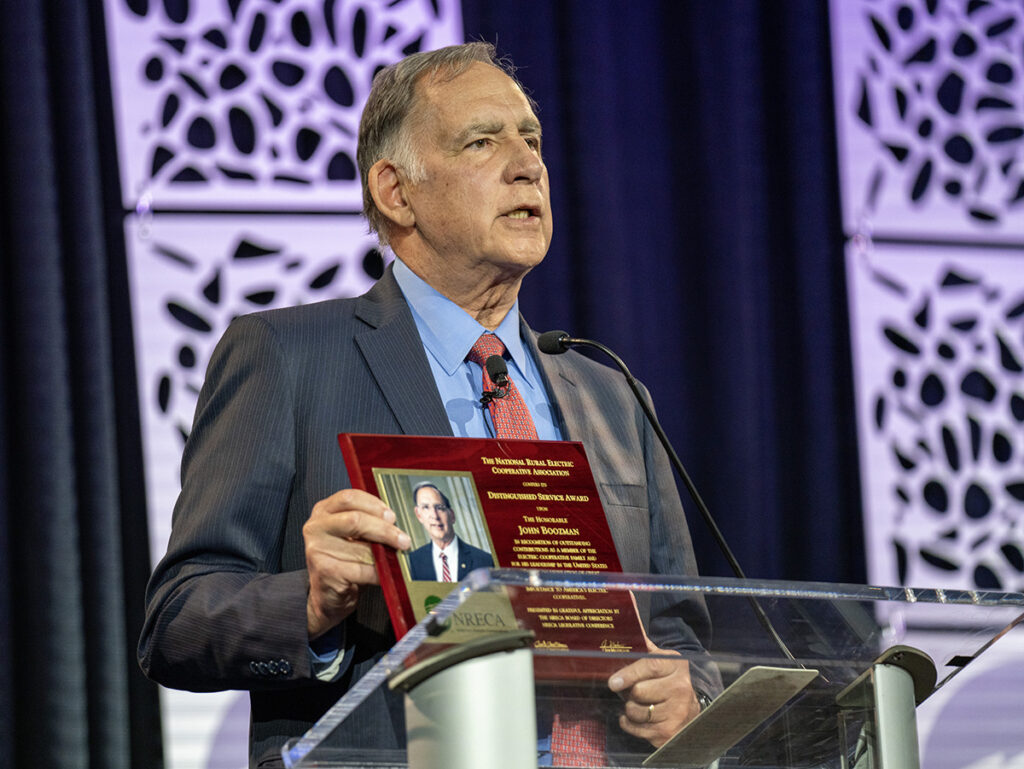
Also on Monday, Sen. John Boozman, R-Ark., received NRECA’s Distinguished Service Award, which honors members of Congress who make essential contributions to electric co-ops and the communities they serve.
“Sen. John Boozman, an electric cooperative member, has been a friend to the Electric Cooperatives of Arkansas throughout his years in public service,” said Buddy Hasten, president and CEO of the Electric Cooperatives of Arkansas. “Sen. Boozman’s dedication as an advocate for Arkansans clearly aligns with the mission of our state’s electric cooperatives.”
Boozman, the ranking member of the Senate Agriculture, Nutrition and Forestry Committee, said he is hopeful that Congress will be able to pass one of NRECA’s top legislative priorities this year: a new five-year Farm Bill that includes full funding for rural economic development and broadband programs. The current Farm Bill expires Oct. 1.
“Farm Bills aren’t about Democrats or Republicans,” he said. “They’re bipartisan. I think we’ve got a great chance of getting it done.”
DOE Official: ‘Reliability Is the Foundation’
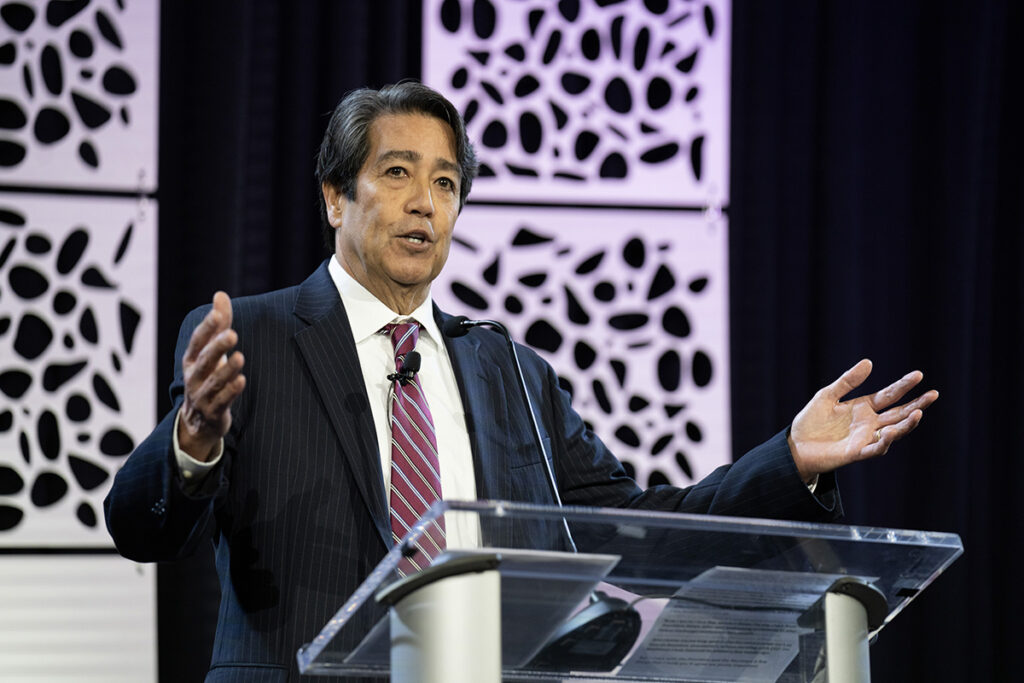
Gene Rodrigues, assistant secretary of energy for electricity, said he shares NRECA’s goal of ensuring that the electric grid “remains reliable, resilient and affordable for all Americans.” The importance of grid reliability is the main message that co-op leaders are taking to Capitol Hill and federal agencies this week.
“We are all in agreement with every single one of you in this room that reliability is the foundation of everything we want to do,” he said.
Unfortunately, the American people and many of their elected officials “take it for granted” that the lights will always come on when they flip the switch, Rodrigues said.
“That’s a problem,” he said, urging co-op leaders to “advocate, educate and collaborate” to sound the alarm about the potential risks to reliability.
“If it’s taken for granted, then we won’t have the champions we need to keep electricity reliable and affordable over time. … Make sure they understand the absolute necessity of investing in a 21st century power grid for the American people.”
Spanberger Lauds Co-op Role in Closing Digital Divide
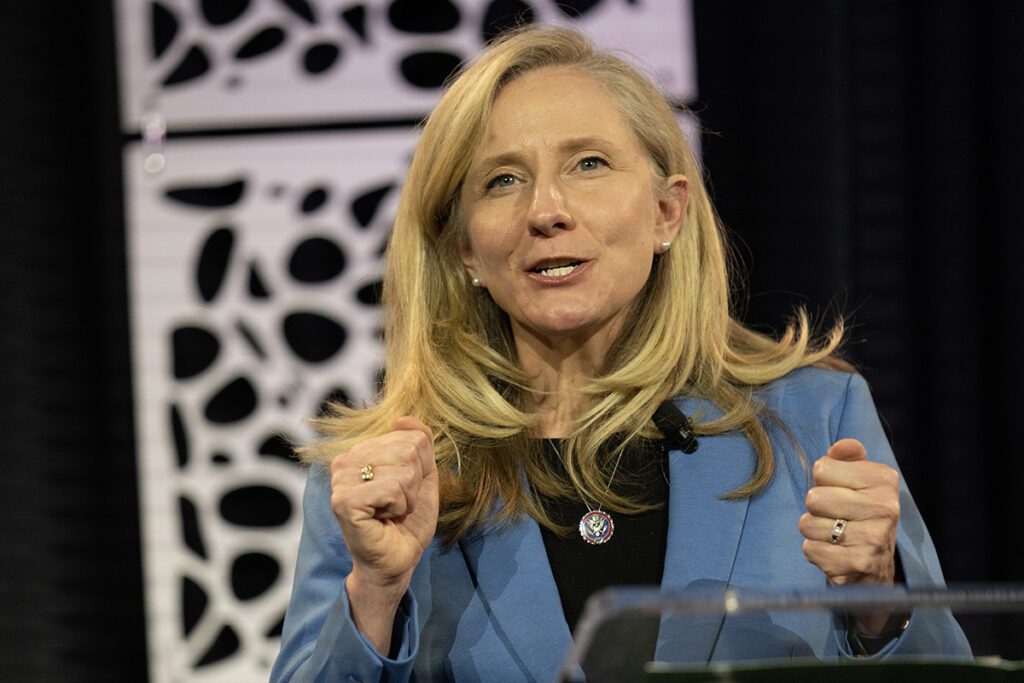
“Rural communities feed and fuel the rest of Virginia and our nation,” Rep. Abigail Spanberger, D-Va., told conference participants. “Unfortunately, at times it seems like rural America can get left out of the conversations on infrastructure and economic development.”
She said that electric co-ops serve 40% of her constituents and are helping to bring essential broadband service to rural communities that for-profit internet providers ignore.
“I’m so grateful to your [NRECA] members for working to bring broadband,” Spanberger said.
The bipartisan infrastructure law’s $65 billion in broadband funding will help close the digital divide and “strengthen our rural economy for the next generation of Americans,” she said.
Freshman House Members Push for Bipartisan Solutions
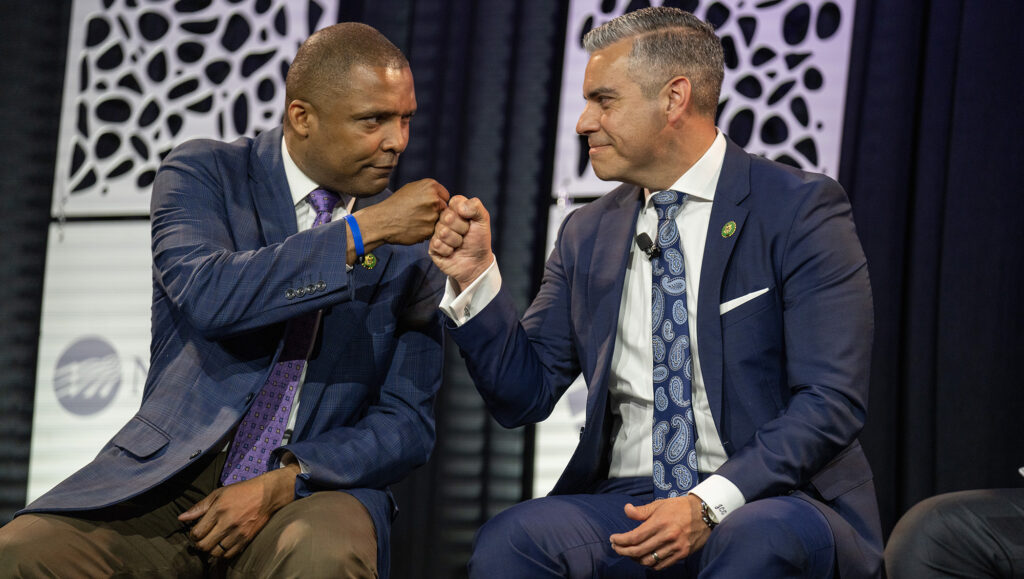
Freshman Reps. Juan Ciscomani, R-Ariz., and Don Davis, D-N.C., were both elected in 2022 and represent electric cooperative members in rural communities. They told co-op leaders that they are frustrated by the fierce partisan divide in Congress and hope to work together as members of the bipartisan Problem Solvers Caucus.
“There’s too much extremism, and it comes from both sides—let’s be honest about it,” Davis said.
Ciscomani, who described his district’s voters as one-third Republican, one-third Democratic and one-third independent, said he has set up an advisory committee back home made up of local leaders with diverse political ideologies.
“There is an appetite in our country for people to work together to find solutions,” he said.
Erin Kelly is a staff writer for NRECA.
More Coverage From Legislative Conference:
What Electric Co-ops Need From Policymakers to Close the Digital Divide
NRECA CEO: Reliable Electricity Is Main Focus of Legislative Conference
Rep. Bob Latta: Rural Connectivity ‘Is Everybody’s Issue’